After 19 years in the mental health field, Ildiko Tabori has built up quite a career for herself. She is the resident psychologist for the famous Laugh Factory, treating comedians with various mental health issues in Los Angeles, and also runs her own private practice. In the past, she has worked with the Hollenbeck-Palms Retirement Community and Peace and Sport as a consultant in the field of Sports Neuropsychology. It may come as a surprise that Ildiko fell into this career path by accident. Having majored in Communication with a focus on Performance, Language and Cultural Studies in college, Ildiko set her sights on an anthropological career among the Aborigines and other communities studying and documenting their lives. It wasn’t until a girlfriend commented on her own love for her graduate psychology classes that Ildiko took the leap and before long decided to earn her doctorate in Clinical Psychology from the California School of Professional Psychology.
After 16 years of working with sex offenders with the California Department of Corrections, she felt the time was right to jump to the next goal, and, in 2012 started her private practice full time. In addition to her patient work, Ildiko also finds the time to teach as an adjunct professor at Pepperdine University. She works tirelessly to dispel the stigmas surrounding mental health in the US and believes that ‘mental health and mental illness should be viewed and treated just like any other medical condition.’ Her one piece of advice to be mentally healthier and happier? Trust your gut. Listen to yourself.
Her Starting Point
What was it about clinical psychology that first sparked your interest? How did you know this was the right path for you?
I did not grow up thinking that I wanted to be a Psychologist. I fell into the field of psychology accidentally. My undergraduate major was in Communication with a focus on Performance, Language and Cultural Studies. I thought I wanted to be an ethnographer and live amongst the Aborigines and other communities studying their customs, rituals and traditions and make documentary films. However, this career path somehow never found its direction. I had briefly worked as an assistant in a production company knowing that this was definitely not the path I wanted to pursue. One afternoon, I was sitting with a girlfriend who was telling me that she loved her studies in a Master’s program in Psychology. To me, it sounded like fun, so I applied, got in and started working on my Master’s degree. While in the program, I discovered an interest in Psychological and Neuropsychological Assessment and that I had a knack for it. Since only Psychologists do these types of tests, I realized that I had to take the leap into a doctoral program. I had two amazing mentors while in graduate school – one in Forensics and one in Neuropsychology. I learned a great deal from both of these brilliant men, not just in their specific specialties, but also about the development of my therapist skills. I will always owe them a debt of gratitude.
After receiving your PhD in Clinical Psychology from the California School of Professional Psychology, what were your next steps? How did you get your career started?
Upon completing my PhD program, my goal was to get licensed as a Psychologist as soon as possible. I worked diligently to complete my training requirements and pass both of my licensing exams. I was working at the Los Angeles County Jail at the time and then moved over to work with the California Department of Corrections in their Parole Outpatient program providing treatment primarily to sex offenders. While I worked at these government agencies, I continued to develop my private practice on a part-time basis because I knew there would be an emotional expiration date (ie., burn-out) from working with criminal offenders. After 16 years, I knew it was time to move on, so I made the leap into private practice full-time in 2012.
You spent some time teaching as an adjunct clinical professor at Pepperdine University and you have also worked in the justice system evaluating and treating criminal offenders. Tell us about these experiences and how they shaped the career you have today.
Teaching has always been a great love of mine. I find that it is a way of sharing your knowledge and providing some guidance to others (my future colleagues) as they embark upon their own journey in this field. I also learned a great deal from my students. I have never been one to purport that I know everything and any new information thrills me.
How did you land your job as the Psychologist-in-Residence at the world famous Laugh Factory? What qualities and skills did you bring to the table that you think other applicants may not have had?
The therapy program at the Laugh Factory is the brainchild of Jamie Masada, the owner of the Laugh Factory. He has been in the business for over 35 years and he knows comedians. Jamie does a great deal of philanthropic work via the Laugh Factory – he feeds the community during Thanksgiving and Christmas and runs a Comedy Camp for underprivileged children every summer, among other things. After the deaths of Richard Jeni in 2007 and Greg Giraldo in 2010, Jamie sensed a need that the comedians needed extra support given their experiences with depression, substance abuse, and other mental health-related issues. I was recommended to him by a colleague. I am not exactly sure what qualities and skills I possessed over other candidates (only Jamie would know the answer to this), but I like to think that it is because I have been a big comedy fan since a very young age, having fallen madly in love with Johnny Carson at the age of 11.

Her Big Break
What are your daily tasks and responsibilities as the Psychologist-in-Residence for the Laugh Factory? How do you balance your residency with your other work for the Hollenbeck-Palms Retirement Community and Peace and Sport?
My daily responsibilities at the Laugh Factory do not differ from any other aspect of my job – my primary focus is to provide treatment and support to all of my patients in whatever capacity that is needed. I develop the treatment goals with my patients and each are tailored to their individual needs. Of course, a comedian’s needs differ drastically from that of an older adult’s needs in a retirement community. I am a consultant for Peace and Sport in the field of Sports Neuropsychology.
We imagine that working with creative individuals as well as older adults can be both stressful and emotional at times. What are your strategies for remaining calm and focused?
The most important aspect of managing stress and difficult emotions is to have a good work-life balance. In American society, we tend to work very hard and we often neglect the other aspects in our life that are equally as important. We don’t prioritize doing things that are healthy for us, like exercise, getting enough sleep, eating well, socializing and utilizing our support systems, and engaging in activities that we enjoy doing. We often feel guilty for giving ourselves some downtime, but this is just as important as work. If we don’t manage our lives with this sort of balance, we tend to get burned out quicker and our ability to focus and remain productive decreases. The best thing that we can do is spend time doing the things that we enjoy doing, even little things, that are not part of our job.
How does working with your clients at the Laugh Factory differ from your interactions with the residents of the retirement community?
While emotions are universal (e.g., depression, anxiety, etc), the etiology of these emotions and the needs of each are vastly different between these two communities. The comedians at the Laugh Factory are in the midst of their careers. The focus of treatment is addressing those career issues, as well as other pressing issues, like relationships, financial concerns, family issues and being on the road. The older adults in the retirement community have worked through their careers and the focus here is to provide support as they move into their golden years, as well as other issues that come with the aging process, like medical conditions and addressing their own mortality.
You’ve been involved in this field for 15 years, what has been the most rewarding thing about working in mental health? Has the field changed since the time you began practicing?
I am actually embarking upon my 19th year in the mental health field. The most rewarding aspect of working in my field is working with my patients to empower them and watching their pain diminish. I am in a field where a thank you is rare and is usually not expected. But when a thank you does come, it is magical. It makes my day and I cherish each and every one of those.

Her Perspective
Are there any misconceptions or attitudes surrounding mental health that you encounter and wish to change?
There is still a stigma attached to mental health. The newest CDC statistics show that only 17% of US adults are at optimal mental health and that by 2020, depression will be the second greatest cause of disability in the world, trailing cardiovascular. This means that most of us have, are and/or will experience depression or any other related mental health issue. With the majority of people experiencing mental health-related concerns throughout their lifetimes, it is still disconcerting that mental health is still frowned upon. Mental health and mental illness should be viewed and treated just like any other medical condition.
If you could tell people to stop (or start) doing one thing to be mentally healthier and happier, what would it be?
Trust your gut. Your gut tells you what you should be doing. We need to listen to ourselves. Trusting your gut will lead us in a direction that we may fear, but a direction in which we can reap great rewards. Our gut will also tell us to remove ourselves from things that are not in our best interest, like toxic relationships or jobs that make us unhappy. I am not saying that we should be impulsive in these decision-making processes, but we should utilize these gut feelings to make better choices in our lives and be proactive.
What advice would you give to someone pursuing a career in clinical psychology and mental health? Any important lessons you’ve learned? What are some other career options available psychology majors who might not want to pursue mental health psychology?
The best advice that I can offer someone interested in pursuing a career in the mental health field is to be true to yourself, to be genuine, and to release the ego. A therapist does not know everything and they don’t know a patient more than a patient knows themselves. Approach the therapeutic relationship as a collaboration between the therapist and the patient and keep the dialogue open and without judgment.
A therapist should recognize their own biases and address them as needed through consultation with colleagues, if needed, because biases are present and should never impact the therapy itself. It is important for a therapist to find their own voice as a professional that is closely related to who they are as individuals, as this is where their genuineness shines through.
Finally, a therapist should never fear having difficult conversations with their patients. It enables the patient to develop these skills on their own because we live in a world in which we need to have difficult conversations with others without being defensive. The alternative is to suppress these feelings, which can lead to dangerous emotional and behavioral consequences.
And finally, what do you wake up looking forward to? What’s next for your career?
I wake up looking forward to what new challenges and what new breakthroughs may come. No two days are alike for me and I enjoy not knowing what will happen next sometimes. As for what’s next, I am hoping to utilize my voice to provide education and work toward destigmatizing mental health, while continuing to empower my patients.
You May Also Like
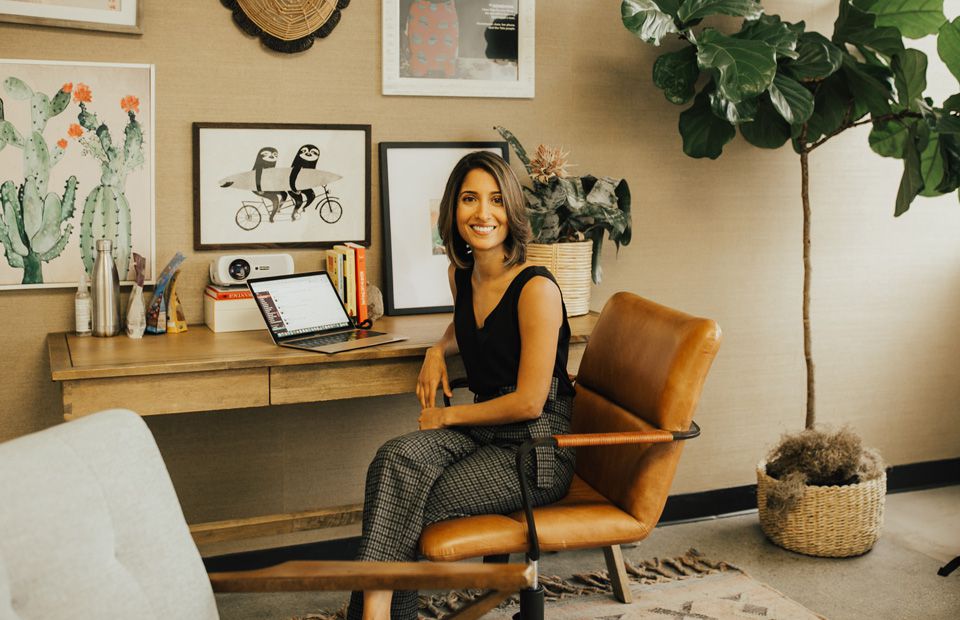
Technology
A Tech Founder on Why Being an Outsider Is a Strength
"I actually think most successful founders are rebels, of a sort. We’re trying to do new things and take on entrenched systems or ways of thinking. What makes me and our company different is that we’re outsiders."
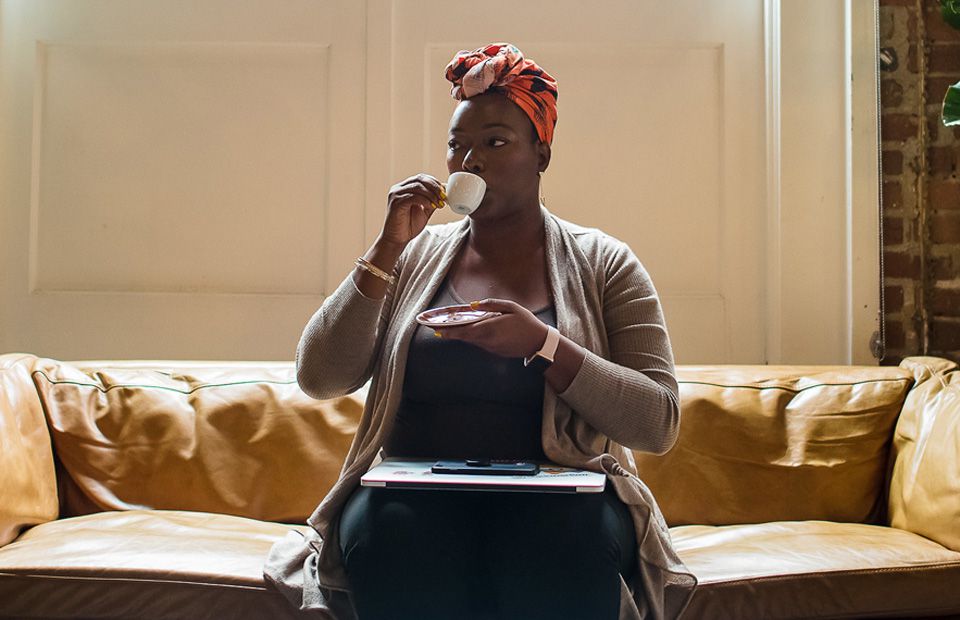
Technology
Omoju Miller—Tech Veteran, Leader, and Volunteer Advisor to the Obama Administration—on The Crucial Role of Creativity in the Tech Industry
"If you are in an environment where you feel marginalized, leave. Don’t try to change it. Go and look for a place that sees you and lets you be you."
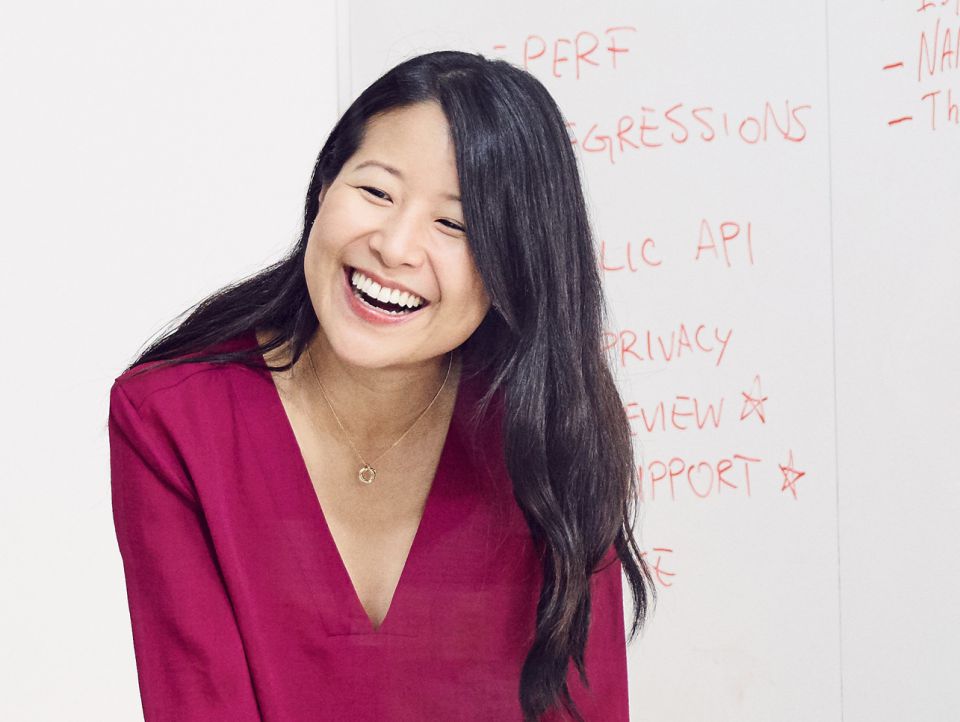
Technology
Sharing Stories as a Software Engineer
We sat down with Apple software engineer Emilie to learn about her day-to-day working at Apple along with what it takes to run the perfect meeting and her favorite ways to unwind.
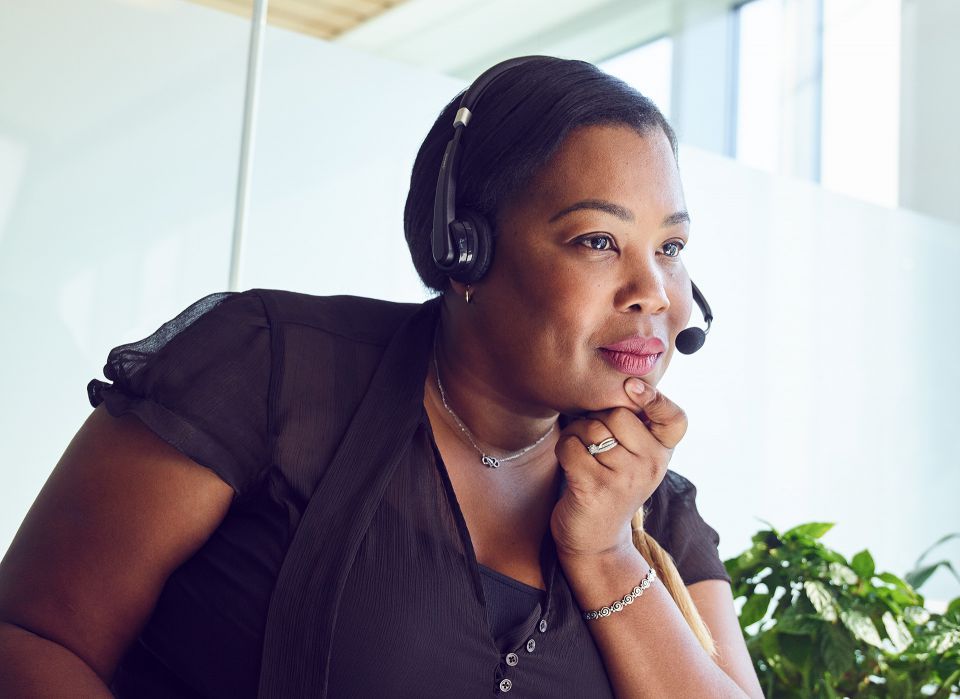
Technology
Creating Impact with Apple
We sat down with Apple's Senior Developer Partner Relations Advisor, Cris, to learn about what it takes to create a lasting impact within a large company. She shares a typical day in the life, her favorite book recommendations, and her top four tips to running a meeting.
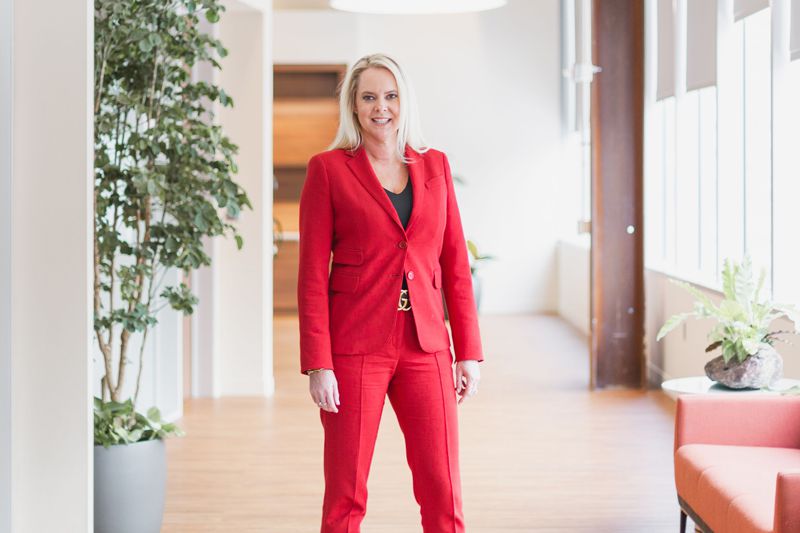
Technology
Salesforce’s Senior Vice President of Sales on Unconscious Bias, Failure, and Innovative Leadership
"Do not be afraid to fail, just bring your best self to the table."
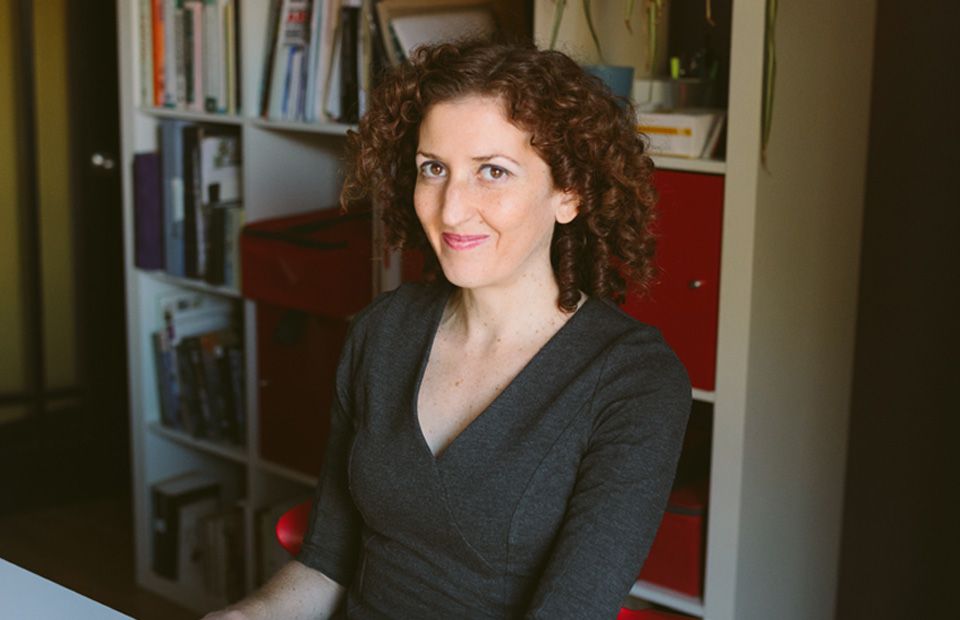
Technology
A Director of Engineering on Tech + Leadership
"I don’t believe in 'having it all'. If you spend more time on one thing, then you spend less time on another thing. All we can do is make choices on how to spend our time."
Get the Best Career Advice Delivered To Your Inbox
Join our newsletter to stay in the loop.
